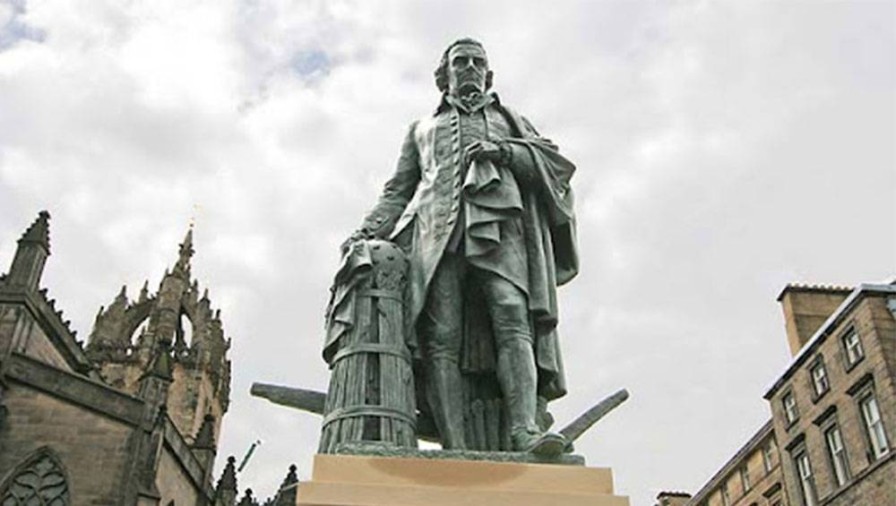Boiling the frog: Act before it’s too late
A recipe for economic recovery based on the legacy of Adam Smith.
What Would Adam Smith Make of Modern Australia? By Joseph Healy.
A recipe for economic recovery based on the legacy of Adam Smith.
What Would Adam Smith Make of Modern Australia? By Joseph Healy.
The big economic news of the past week is that the Reserve Bank of Australia (RBA) lowered its official cash rate, with a further 50 basis point reduction expected by most market observers by the end of the year.
This would bring the rate to 3.35% with inflation continuing to moderate. Australia’s monthly CPI rose by 2.1% year-on-year in May, the lowest reading in seven months, while annual inflation remained steady at 2.4% in the first quarter.
By comparison, the Reserve Bank of New Zealand is expected to reduce its OCR by 25 basis points to 3.0% at the August 20 meeting. According to Westpac, this would be “the low point” for the easing cycle, with CPI inflation likely to move above 2.7% in the June year.
Westpac said it expected the New Zealand dollar to lose some ground against the Aussie dollar, even with relative interest rates set to turn in the NZ dollar’s favour by mid-2026 as the RBA delivers further rate cuts.
“The Australian economy stands to benefit more if China’s domestic policies successfully mitigate the negative impacts of US tariffs. And, at the margin, the 15% tariff rate on our exports into the US puts us at a small competitive disadvantage against Australia’s 10% rate,” Westpac’s economists noted.

Joseph Healy.
I saw no reason to challenge these assertions on a recent private visit to Australia. The concerns of ordinary people and government policymakers on both sides of the Tasman remain remarkably similar.
This was confirmed in a book I picked up while in Sydney, which has two excellent, large-scale bookshops, Dymocks and Books Kinokuniya. What Would Adam Smith Make of Modern Australia? is an irresistible title for anyone interested in economics, let alone the future fates of Australia and New Zealand.
Its author, Joseph Healy, may not be well known in New Zealand, but his first academic book, Corporate Governance and Wealth Creation in New Zealand, was published here in 2003. It’s now out of print and unavailable except for library copies and from second-hand book dealers.
Healy was born and educated in Edinburgh and started his career in banking in London. He moved to Australia, where he worked for several banks, including ANZ and NAB, before co-founding Melbourne-based Judo Bank, which specialises in lending to small and medium-sized businesses.
By then, he was in his early 50s, had missed out on a CEO position, and had spent a sabbatical year at the University of Nottingham, Ningbo, in China. “I used that year not just to understand Chinese culture and history, which I'm passionate about, but also think about what I wanted to do for the next 10 years,” he told The Herald in Scotland last year.
His dissatisfaction and disillusionment with the declining morality of banking also resulted in another book, Breaking the Banks: What went wrong with Australian banking? (2019). He cut his ties with Judo last year and has since launched Malu Health Group, which specialises in mental health. Healy also co-wrote Black Belt (2013), the startup story of Judo Bank.

Statue of Adam Smith in Edinburgh’s Royal Mile.
Any business-minded visitor to Edinburgh will know the statue of Adam Smith in The Royal Mile. Smith and his contemporary David Hume are credited with the creation of the Scottish Enlightenment, perhaps the major intellectual contribution to the modern capitalist world.
Both lived in the 18th century, with Hume (1711-76) influencing Smith’s thinking, especially in philosophy and economics. They shared similar views on morality, human nature, and political economy, with Smith (1723-90) defending Hume’s legacy after his death. As stated in last week’s book review, Hume’s rationalist philosophy, in turn, influenced George Eliot, Iris Murdoch, and Alasdair MacIntyre.
Healy’s admiration for Smith doesn’t just relate to their common birthplaces and Scottish belief that he was both the father of economics and its greatest practitioner. Healy devotes two-thirds of his book to Smith’s two major works, The Theory of Moral Sentiments (1759) and The Wealth of Nations (1776), and their continuing relevance today.
Healy then applies them as a solution to the social and economic conundrum that affects all affluent societies: declining prosperity as populations rise; huge demographic shifts; stagnating productivity; and growing inequality. Economic policy management, he suggests, is to blame, even as GDP figures show growth but fewer sharing in its benefits.
Despite this apparent progress, other measures of societal wellbeing are heading in the wrong direction: family dysfunction and domestic violence; falling educational standards; a flawed tax system; and a rise in mental health-associated problems.
Healy admits Smith did not have all the answers to what ails society. Issues not covered in the book are climate change, immigration, housing supply, and media reform (including social media).

New Zealanders could easily agree with Healy’s proposition that the consequences of continuing a trajectory of decline is not in anyone’s long-term interest. He draws on the ‘boiled frog’ syndrome: that we often don’t notice big changes if they happen gradually and then find it’s too late to regret that these were allowed to happen.
It may be some comfort to New Zealand readers that Healy’s prescriptions are already under way: for example, the decision to can NCEA is a start on tackling declining educational outcomes, which are also dire in Australia.
Nearly three centuries ago, Smith was an advocate of universal public compulsory education. This would offset the mundane nature and other harmful effects he identified in the market economy’s division of labour. An educated workforce was “more decent and orderly than an ignorant and stupid one,” Smith wrote.
He implicitly knew that humans weren’t built for routine and monotonous repetition, and that they were naturally designed to seek exploration and learning. Healy observes that the modern change in education policy away from Smith’s fundamentals to more popular, less rigorous learning was also implemented in Scotland itself, with drastic results.
“No other government in Europe has reformed its curriculum as radically as Scotland has,” University of Edinburgh Professor Lindsay Paterson said, noting that Scotland’s international rating was 20 points below that of England. Previously, it was 10 points ahead.

Adam Smith was aware of workers’ needs before the Industrial Revolution.
Healy summarises his Smithian vision for Australia in five priority areas:
My summaries are necessarily bald, and belie the research Healy has done. Most of his proposals apply to New Zealand and have been variously advocated across the political spectrum from the Greens to Act.
Smith’s astute analysis of how capitalism can work to the benefit of all was underlined by a philosophy of moral conduct for society. He was a classical liberal who could distinguish where governments should be small and where they should be strong without curbing individual liberty. These issues are still current, and Healy has performed a valuable service in demonstrating how good ideas never die.
What Would Adam Smith Make of Modern Australia? By Joseph Healy (Major Street Publishing).
Nevil Gibson is a former editor at large for NBR. He has contributed film and book reviews to various publications.
Sign up to get the latest stories and insights delivered to your inbox – free, every day.